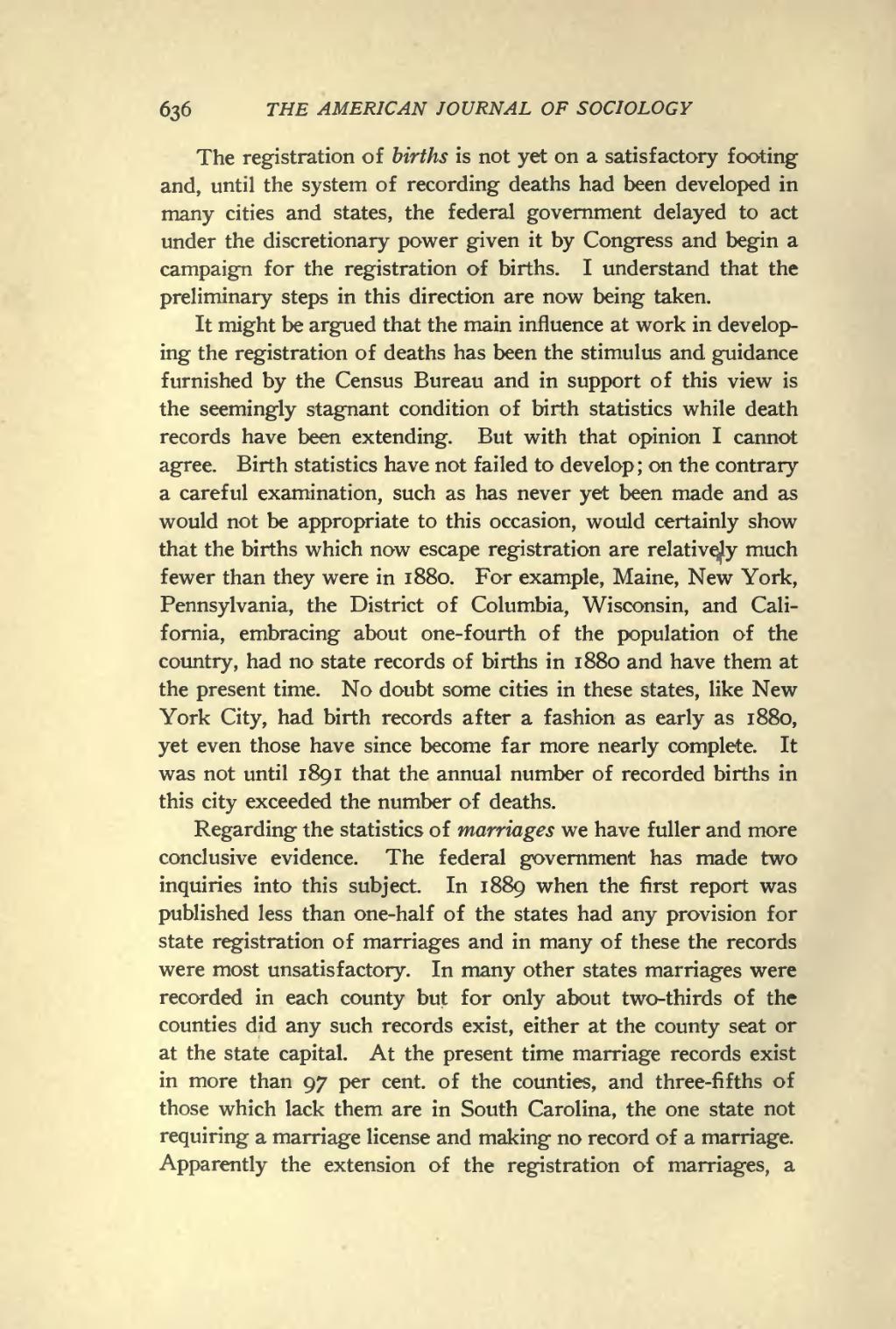636 THE AMERICAN JOURNAL OF SOCIOLOGY
The registration of hirths is not yet on a satisfactory footing and, until the system of recording deaths had been developed in many cities and states, the federal government delayed to act under the discretionary power given it by Congress and begin a campaign for the registration of births, I understand that the preliminary steps in this direction are now being taken.
It might be argued that the main influence at work in develop- ing the registration of deaths has been the stimulus and guidance furnished by the Census Bureau and in support of this view is the seemingly stagnant condition of birth statistics while death records have been extending. But with that opinion I cannot agree. Birth statistics have not failed to develop; on the contrary a careful examination, such as has never yet been made and as would not be appropriate to this occasion, would certainly show that the births which now escape registration are relativ^y much fewer than they were in 1880. For example, Maine, New York, Pennsylvania, the District of Columbia, Wisconsin, and Cali- fornia, embracing about one-fourth of the population of the country, had no state records of births in 1880 and have them at the present time. No doubt some cities in these states, like New York City, had birth records after a fashion as early as 1880, yet even those have since become far more nearly complete. It was not until 1891 that the annual number of recorded births in this city exceeded the number of deaths.
Regarding the statistics of marriages we have fuller and more conclusive evidence. The federal government has made two inquiries into this subject. In 1889 when the first report was published less than one-half of the states had any provision for state registration of marriages and in many of these the records were most unsatisfactory. In many other states marriages were recorded in each county but for only about two-thirds of the counties did any such records exist, either at the county seat or at the state capital. At the present time marriage records exist in more than 97 per cent, of the counties, and three-fifths of those which lack them are in South Carolina, the one state not requiring a marriage license and making no record of a marriage. Apparently the extension of the registration of marriages, a
